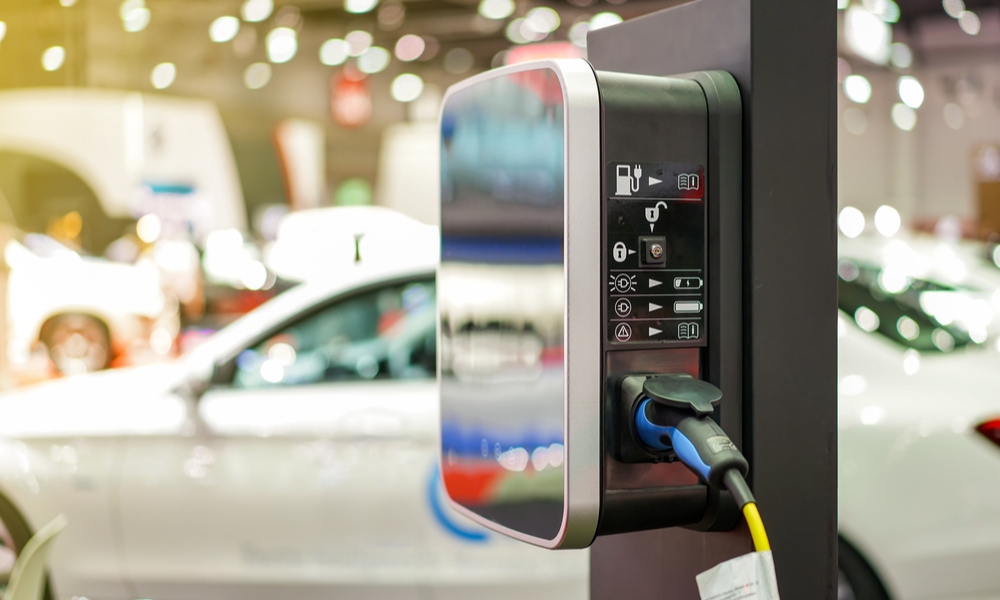
Image Credit: CNN
Labour’s landslide victory in the UK General Election has undoubtedly captured the nation's attention. But what does the UK general election mean for the automotive industry, an industry that is both a significant employer and a vital part of the nation's economy?
With Labour's manifesto promising substantial changes, the implications for the automotive sector are profound. Here, we will break down the key points of the manifesto the Labour government will be looking to implement, exploring how they could impact everything from emissions targets to road infrastructure.
Labour's 2024 General Election manifesto spans 136 pages, making it the most detailed of all the manifestos that were published in the build-up to the election. Among these pages are some significant pledges regarding transport and roads, which have the potential to reshape the automotive industry in the UK.
One of Labour's flagship promises is to renew the road network and tackle one million potholes every year. Should the new Labour government follow this promise, it will be a welcome relief both for employees and professional drivers who have long suffered due to poor road conditions. Labour's commitment to safer roads aims to benefit all users, from cyclists to commuters and HGV drivers.

In response to concerns from manufacturers, Labour has pledged to restore the 2030 phase-out date for new internal combustion engine (ICE) vehicles. This is a critical move that underscores the urgency of transitioning to zero-emission vehicles and could represent a key way that the UK general election could impact the automotive industry.
High insurance costs have been a growing concern for many drivers. Labour's commitment to tackling this issue, along with accelerating the roll-out of charge points, aims to support drivers during this transition. By standardising information on the condition of batteries, Labour hopes to make purchasing second-hand electric vehicles more appealing.
Jakob Pfaudler, CEO of the AA, expressed satisfaction with Labour's manifesto, highlighting its alignment with the AA Motoring Manifesto. Pfaudler emphasised the importance of the 2030 zero-emission deadline, alongside the need for charging infrastructure and investment in gigafactories to support the transition.
Simon Williams, RAC's head of policy, appreciated Labour's focus on local road maintenance and the transition to electric vehicles. However, he raised concerns about the absence of any mention of the HS2 funding reallocation, which was previously promised by the Conservative government to resurface 5,000 miles of local roads.
While reinstating the 2030 ICE phase-out date is significant, the Zero Emission Vehicle Mandate will be another key way that the UK election result will affect the automotive industry. The mandate enforces a gradual increase in the sale of electric vehicles, ensuring manufacturers meet specific targets.
Despite the push towards electric vehicles, the high cost remains a barrier for many drivers. Labour has the opportunity to stimulate demand by reintroducing a plug-in car grant aimed at the affordable end of the market, making zero-emission driving accessible to a broader demographic. This isn’t something Labour has yet committed to, but it hasn’t been ruled out either.
Labour's promise to speed up the installation of EV charge points is promising, but the manifesto lacks specifics on how this will be achieved. Previous discussions suggest removing planning restrictions and providing guidance to councils, but concrete targets and timelines are needed.

Introducing government-standardised battery health checks could provide significant reassurance for used EV buyers. However, financial support mechanisms, such as used EV grants or low-cost loans, would further encourage the adoption of second-hand electric vehicles.
Labour's promise to maintain the full expensing system for capital investment is crucial for businesses, especially those investing in new technologies and infrastructure. However, clarity is needed on whether this will extend to leased assets.
Labour's commitment to upgrading ports and building supply chains through the National Wealth Fund is expected to have a significant impact on logistics. The focus on green investment is essential for the UK's long-term sustainability goals.
The proposed reform of the Apprenticeship Levy, creating a flexible Growth and Skills Levy, aims to better support industries with significant skill shortages. Ensuring a steady workforce, particularly for roles like heavy vehicle mechanics, is vital for the automotive sector's future.
Labour's pledge for a more integrated approach to migration and skills policy is crucial. It aims to ensure the workforce required to support the automotive industry's growth and transition to new technologies is in place.
Labour presents a comprehensive vision for the future of the UK's transport and automotive sectors. While the proposals are ambitious and address several critical issues, the need for detailed implementation plans and clarity on certain policies remains.
For the automotive industry, the emphasis on transitioning to electric vehicles, improving road infrastructure, and supporting workforce development are essential steps towards a sustainable future. However, the success of these initiatives will depend on the specifics of their execution and the level of financial support provided.
At SG Fleet, we aim to keep you up to date on the latest developments across the fleet and automotive sector. Get in touch with us today, or keep a close eye on our news page to read articles covering topics from new vehicle releases to company news and from industry trends to driving tips.
- How Will the UK Government’s VETS Scheme Impact Fleet Customers?
- When Will the UK Car Market Return to Pre-Covid Levels?